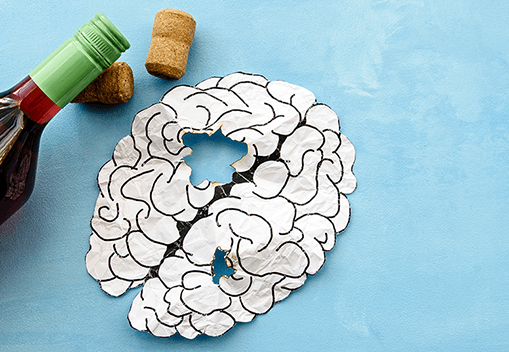As July rolls around, thousands of Australians are going alcohol-free to raise money for those affected by cancer. The next 30 days can be a strong test of willpower, in what can sometimes feel like an impossible task of not consuming any alcohol. While raising awareness for Dry July is definitely its own reason to consider staying sober for the next month, there are many other benefits as to why you might consider abstaining from alcohol.
Cutting back on drinking is shown to have a myriad of health benefits on your body, giving your organs a well-needed break from alcohol consumption. The biggest benefit is liver relief, as alcohol contributes to both a buildup of fat in the liver as well as tissue scarring. The good news is the liver is incredibly tolerant, and when you stop drinking, alcohol-related damage is reversed and improvements are seen in a matter of weeks.
Regular alcohol consumption also impacts your heart health by slowing down your metabolism and increasing your cholesterol. Reducing your alcohol intake can significantly improve your cardiovascular health, as abstaining from alcohol can improve your blood pressure and reduce alcohol-related risk of stroke and heart disease.
Reducing alcohol can also decrease your risk of developing alcohol-associated cancers, with research finding links between liver, breast, colorectal, and esophageal cancer with alcohol consumption. Finally, research has shown that reducing alcohol intake can help with weight loss. This is because of the high caloric density of alcohol and the overconsumption of food (usually fast food and snacks) when drinking.
If the physical benefits weren’t enough, cutting back on alcohol has been shown to positively impact your mental and cognitive health. Neurologically, consistent heavy drinking has been shown to shrink the frontal lobes of the brain, consequently impairing thinking skills. Alcohol can also damage gray matter, a part of the brain responsible for processing information. Fortunately, however, this damage is reversible and the brain can completely re-heal the damage done by alcohol during periods of abstinence. Drinking can also affect mood, as alcohol can exacerbate symptoms of mental illness including depression, anxiety, bipolar disorder, and schizophrenia. Taking some time off alcohol helps you think with more clarity and handle any existing mental health issues in a much more positive way. In addition, not drinking alcohol can improve the quality of your sleep, which also contributes to improved concentration, increased energy levels, and better mood.
Another reason to consider cutting back on drinking is for the financial benefit. Even if one glass of wine or a bottle of beer feels like a small purchase on its own, if you drink frequently this cost adds up. Based on a 2020 survey, the average Australian spends around $1900 a year on alcohol ($32 per week). Even if this expenditure on its own isn’t enough reason, not drinking also means saving money on alcohol-related expenses, such as Ubers and taxis, and late night meals.
If you are thinking of cutting back on your alcohol intake but don’t know where to start, here are some tips:
- Write out your intentions and goals: Set limits with measureable guidelines. Decide the maximum number of drinks you want to drink per day and the maximum number of days a week you want to drink. Then ask yourself why? Is it for health or financial reasons, or to get better sleep? Consider how you can meet these goals and how to incorporate more alcohol-free days into your week.
- Identify your triggers and plan ahead: Work out why you typically drink – are you more of a social drinker, or do you drink more when you’re stressed? Identifying these triggers means you can develop coping strategies that don’t rely on alcohol.
- Find support: Share your goals with friends or family who can provide encouragement and hold you accountable. Even try to convince friends to join you in cutting back drinking.
- Explore alternatives: Find non-alcoholic beverages that you enjoy drinking! Whether it’s a mocktail, alcohol-free wines and beers, or other drinks that might satisfy your cravings.
- Choose drinks containing less alcohol: If trying to cut back, consider ways to choose less alcoholic drink options. This can look like mid strength beers, or ordering a small glass of wine instead of a large.
- Pace yourself: Sip drinks slowly, don’t chug them. Avoid getting refills and focus on drinking only one standard drink per hour to give your liver some time to metabolise the alcohol.
- Stay hydrated: Having a glass of water in between each drink not only keeps you hydrated but is an easy way to slow down your alcohol intake.
- Be kind to yourself! Cutting back on alcohol can be difficult. Celebrate small victories and focus on the positive changes. If you slip up, don’t give up.
Importantly, reducing your alcohol intake gives you a chance to reevaluate your relationship with drinking. While many people think they have a healthy relationship, research has shown many people underestimate how much alcohol they are drinking. Abstaining from alcohol provides you an opportunity to see what life looks like without drinking and reflect on the impact this has on your health, relationships, productivity, and whether alcohol has prevented you from dedicating time to pursue hobbies and interests.

